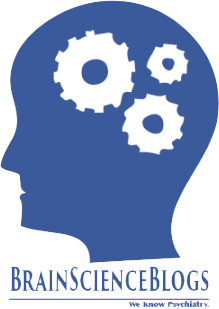Repetitive training, used widely in autism education, may hinder the learning process by promoting inflexibility, a new study with potentially “earthshaking” implications shows.
The study unexpectedly found that repetitive training, a technique widely used in intervention and education for people with autism spectrum disorder (ASD), hinders the learning process by promoting inflexibility. Counterintuitively, the study found that reducing repetition in teaching may enhance learning in individuals with ASD.
The study, which one autism expert who was not involved in the study called potentially “earthshaking,” was published online October 5 in Nature Neuroscience.
Repetition Breeds Inflexible Learners
Using a computer-based perceptual learning protocol, the research team trained a group of high-functioning adults with ASD and a healthy control group to locate three diagonal bars that were surrounded by horizontal lines. Participants were asked to identify the diagonal bars during eight daily practice sessions; their speed and accuracy were logged.
For the first 4 days, the bars were kept in the same location on the screen. Then on days 5 through 8, they were moved to a different location.
During the first 4 days (repetitive learning phase), speed and accuracy of learning were equal for the ASD and control participants. On days 5 through 8, after the location of the diagonal bars had been changed, the control group smoothly transitioned to learning the new location, and their performance continued to improve.
But the results were far different for those with ASD. On days 5 through 8, when the location of the diagonal bars was changed, they performed poorly and were unable to improve their performance. They were never able to learn the second location as well as they had learned the first, suggesting that the repetitive drill interfered with their learning, the researchers say.
“It’s like they showed ‘hyperspecificity’ of learning ― their learning became fixed and inflexible ― since learning the first location adversely influenced their ability to learn the second instance,” lead author Hila Harris, a doctoral candidate in the Department of Neurobiology at the Weizmann Institute of Science, in Rehovot, Israel, said in a statement.
In follow-up experiments, this hyperspecificity in learning with repetition in individuals with ASD was eliminated when repetition in learning was reduced.
In these experiments, the researchers put new groups of adults with ASD and control participants through the same experiment, but this time during the first 4 days, the researchers occasionally inserted “dummy” screens that did not contain any diagonal bars. This time around, when the location of the bars changed on day 5, the ASD group efficiently learned the new location. “Reducing stimulus repetition eliminated over-specificity,” the authors note in their report.
“Our conclusion is that breaks in repetition allow the visual system some time to rest and allow autistic individuals to learn efficiently and to then generalize,” study investigator David Heeger, PhD, of the Center for Neural Science, New York University, in New York City, said in a statement. “Repeated stimulation leads to sensory adaptation, which interferes with learning and makes learning specific to the adapted conditions. Without adaptation, learning is more efficient and can be generalized,” he noted.
“In addition, we targeted a very simple type of learning, thought to be mediated by sensory cortex (not complex or sophisticated parts of the brain), so it’s interesting to note that even this simple type of learning is adversely affected by repetition,” she said.
The researchers note that the findings have potentially important implications for educating individuals with ASD.
“Earthshaking” Implications
To say the findings have potentially important clinical implications may be an understatement in the view of Matthew Siegel, MD, director of the Developmental Disorders Program at Spring Harbor Hospital, in Westbrook, Maine, who was not involved in the study but who reviewed it for Medscape.
“Where we thought we might be recruiting a strength of individuals with ASD (repetitiveness), we may actually be facilitating a cognitive weakness that inhibits learning. The population this is most relevant for, though, is lower-functioning individuals with whom repetitive trials of picture stimuli are a common learning intervention. It would be revolutionary to see this study replicated in a lower-functioning group of children and extended to a real-world classroom setting,” Dr Siegel said.
The research was funded by the United States–Israel Binational Science Foundation and the Simons Foundation Autism Research Initiative. The authors have reported no relevant financial relationships.




Leave A Comment